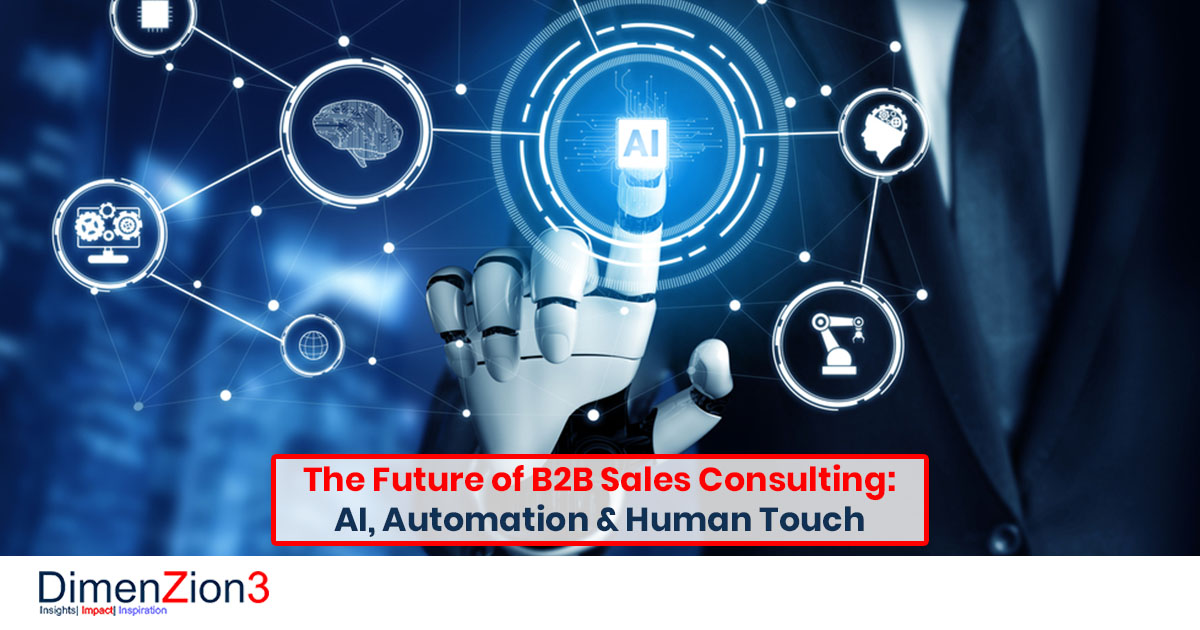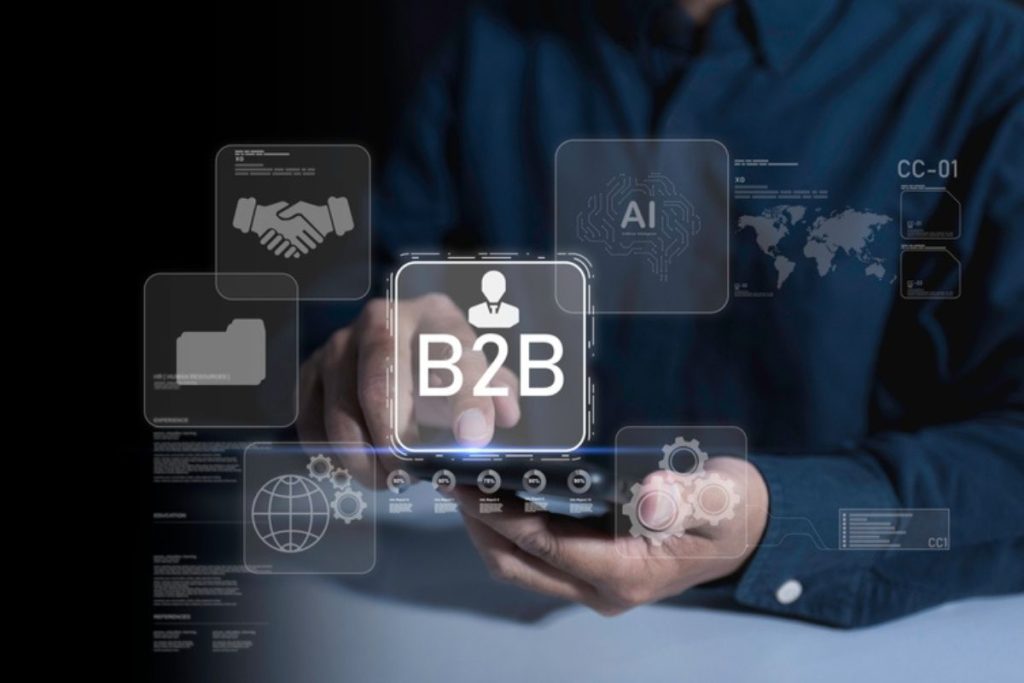Leveraging AI Automation For B2B for smarter supply chain decisions
Open Performance and Development With AI Automation for B2B Firms
AI automation is changing the landscape for B2B companies. It minimizes and enhances operations dependence on human treatment. This shift allows organizations to make quicker, data-driven choices. As organizations explore which refines to automate, they should also take into consideration the right devices to execute. Challenges remain in taking on AI modern technology. The ramifications of these modifications could shape the future of several firms in methods yet to be completely understood
Recognizing AI Automation in the B2B Context
As organizations progressively seek efficiency, recognizing AI automation in the B2B context ends up being important. AI automation involves using sophisticated technologies to simplify procedures, decrease human treatment, and improve decision-making processes. In the B2B landscape, this can show up in different kinds, such as automating customer care communications, handling supply chain logistics, or maximizing advertising campaigns. Firms can leverage AI to assess large datasets quickly, allowing them to identify fads and insights that notify strategic selections. Additionally, AI systems can incorporate perfectly with existing modern technologies, offering a natural platform for handling organization functions. This understanding prepares for organizations to check out just how AI can transform their operations, boost productivity, and ultimately foster sustainable growth in an open market.
Secret Benefits of Carrying Out AI Automation

Determining Procedures Ideal for Automation

Selecting the Right AI Tools for Your Organization
When B2B business take into consideration automating their processes, choosing the right AI tools ends up being vital for accomplishing wanted results. Business need to start by assessing their one-of-a-kind needs and goals, making certain alignment with company objectives (B2B Growth Consulting). Examining the integration, scalability, and flexibility capacities of potential tools is critical, as these factors identify long-term efficiency. Organizations needs to likewise take into consideration user-friendliness and the degree of assistance given by vendors, as these aspects can influence successful application. Additionally, analyzing client evaluations and study can offer insights right into just how certain AI solutions carry out in real-world situations. By thoroughly picking AI devices that fit their functional requirements, B2B business can improve effectiveness and drive development while decreasing possible disturbances
Overcoming Challenges in AI Adoption
B2B companies frequently experience considerable difficulties in embracing AI innovations, especially problems associated with data quality and resistance to change management. Poor information top quality can prevent the performance of AI systems, while worker unwillingness to accept new procedures can delay application efforts - AI Automation For B2B. Dealing with these challenges is essential for effective AI assimilation and maximizing its potential advantages
Information High Quality Issues
Guaranteeing high information high quality is necessary for the effective fostering of AI innovations in business-to-business environments. Imprecise, insufficient, or out-of-date data can significantly impede AI initiatives, leading to wrong insights and inadequate decision-making. Business frequently face obstacles such as data silos, incongruities throughout different resources, and a lack of standard data layouts. To conquer these concerns, organizations have to buy information cleansing, integration, and administration processes. Carrying out robust data monitoring methods assures that the info fed right into AI systems is reputable and relevant. Additionally, fostering a culture of information quality understanding amongst workers can enhance information accuracy with time. By resolving data high quality problems, B2B companies can launch the complete potential of AI automation, driving efficiency and development.
Adjustment Management Resistance

Determining the Effect of AI Automation
Measuring the influence of AI automation in B2B firms needs a clear understanding of key efficiency signs (KPIs) that align with business objectives. Effective data evaluation strategies are essential for translating the results, while durable ROI evaluation techniques aid figure out the monetary benefits of automation initiatives. Together, these parts supply a comprehensive structure for examining AI's contributions to business success.
Key Efficiency Indicators
Key efficiency indicators (KPIs) offer as important devices for B2B business to analyze the efficiency of AI automation campaigns. By establishing clear metrics, companies can measure renovations in operational effectiveness, price reduction, and earnings growth straight attributable to automation. Common KPIs include cycle time decrease, mistake rates, consumer complete satisfaction ratings, and employee efficiency degrees. These indicators supply understandings into exactly how AI systems are maximizing processes and improving total efficiency. Additionally, tracking KPIs allows firms to identify areas for additional renovation and to align AI automation efforts with calculated organization objectives. Ultimately, a distinct framework of KPIs guarantees that B2B business can quantitatively examine the influence of AI automation on their operations and drive continuous growth.
Data Analysis Methods
Reliable information evaluation techniques play a vital function in examining the influence of AI automation within B2B firms. By utilizing statistical approaches, organizations can identify trends and patterns in operational data, allowing them to evaluate the efficiency acquires accomplished with automation. Methods such as regression analysis and time series forecasting provide insights right into just how AI-driven procedures affect performance and decision-making. In addition, information visualization tools can efficiently interact findings to stakeholders, helping with informed strategic choices. Artificial intelligence formulas can further boost evaluation by predicting future end results based upon historical data, offering workable understandings. Eventually, these techniques enable B2B firms to gauge success and enhance their AI automation initiatives, ensuring placement with service goals and enhancing total performance.
ROI Assessment Approaches
Examining the return on investment (ROI) of AI automation is important for B2B companies looking for to understand the economic ramifications of their technological campaigns. Business can use different ROI assessment approaches to evaluate the effectiveness of AI applications - AI Automation For B2B. One reliable method entails determining price savings by contrasting operational expenditures before and after automation (AI Automation For B2B). Furthermore, determining productivity renovations with key efficiency signs (KPIs) helps evaluate the benefits of AI. Consumer fulfillment metrics can also give insights right into the effect of automation on service top quality. To guarantee a thorough analysis, companies need to think about both straight abstract benefits and economic returns, such as enhanced decision-making capacities and competitive benefit. This multifaceted examination enables B2B firms to make informed choices concerning future financial investments in AI innovation
Future Fads in AI Automation for B2B Companies
What technologies lie in advance for AI automation in B2B firms? Emerging patterns indicate a considerable change towards improved information analytics capabilities, allowing organizations to make more educated choices. Anticipating analytics will end up being significantly essential, enabling firms to prepare for market changes and client requirements. In addition, the integration of AI with Internet of Things (IoT) modern technology is anticipated to streamline operations by offering real-time understandings and automation of procedures. Firms will likewise concentrate on boosting customer experiences through customized advertising and marketing driven by AI formulas. Moreover, advancements in natural language processing will help with much better communication between customers and businesses. As these fads advance, B2B firms have to adjust to take advantage of AI automation successfully, making sure sustained growth and competitive benefit.
Regularly Asked Concerns
What Industries Benefit one of the most From AI Automation in B2B?
Production, money, health care, and logistics markets benefit one of the most from AI automation in B2B. These fields take advantage of AI to enhance processes, boost decision-making, and enhance general operational performance, driving considerable growth and innovation.
Just How Does AI Automation Effect Employee Responsibilities and Responsibilities?
AI automation improves employee duties and duties by improving repetitive jobs, allowing employees to concentrate on tactical campaigns. This shift fosters ability development, boosts efficiency, and motivates collaboration, inevitably driving organizational development and development.
What Prevail False Impressions Regarding AI Automation in B2B?
Usual mistaken beliefs about AI automation in B2B consist of fears of task loss, ideas that AI can fully change human judgment, and ignoring the importance of partnership in between AI systems and employees for excellent results.
Just How Can Companies Make Sure Information Personal Privacy With AI Automation?
Businesses can ensure information personal privacy with AI automation by implementing robust file encryption procedures, sticking to governing conformity, conducting regular audits, and training workers on data managing techniques to minimize risks and protect sensitive info.
What Are the Expenses Related To Carrying Out AI Automation?
The prices connected with applying AI automation consist of software program procurement, infrastructure upgrades, training personnel, ongoing upkeep, and prospective downtime during integration. Furthermore, companies might incur expenditures associated Minarik AI with data security and conformity steps.
Determining the effect of AI automation in B2B firms requires a clear understanding of key efficiency indicators (KPIs) that straighten with organization goals. Secret performance signs (KPIs) serve as necessary devices for B2B firms to evaluate the efficiency of AI automation initiatives. Efficient data evaluation strategies play a crucial duty in assessing the impact of AI automation within B2B business. Reviewing the return on financial investment (ROI) of AI automation is important for B2B business looking for to understand the monetary ramifications of their technological initiatives. What innovations exist ahead for AI automation in B2B business?